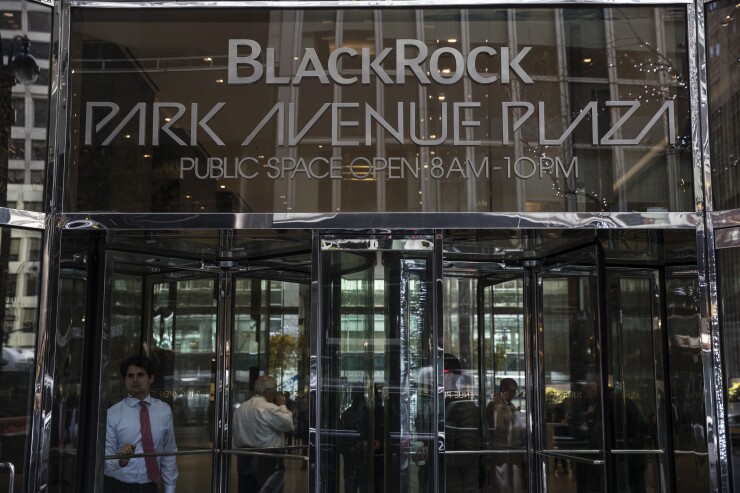A study examining how often asset managers vote
BlackRock, the world's largest investment manager, supported just two of 20 climate resolutions in 2023 that were analyzed by ShareAction, the London-based nonprofit, which is due to publish its full report on the subject on Thursday. State Street, the third-biggest asset manager, backed less than half the green measures proposed at shareholder meetings, the study found.
The analysis homed in on the largest signatories of Climate Action 100+, an alliance of more than 700 investors overseeing a combined $68 trillion of assets. Members promote shareholder engagement over divestment as a means to achieve green goals, and shareholder voting is often seen as the most powerful means of advancing those priorities.
"Voting on shareholder resolutions is a key lever for institutional investors to hold companies to account on their commitments," Felix Nagrawala, research manager at ShareAction, said in an interview. "Yet the very largest asset managers aren't pulling their weight."
ShareAction's documented lack of support for climate resolutions from asset managers comes as the planet endures the hottest temperatures on record amid rising carbon dioxide emissions. The International Energy Agency has said there's no room for investment in new fossil-fuel projects if the goal of limiting the average temperature rise to 1.5C is to be achieved.
A spokesperson for BlackRock said the firm analyzes every resolution and votes — when authorized — to advance its clients' long-term financial interests. Last year, BlackRock deemed many proposals to be "over-reaching, lacking economic merit, or simply redundant" and therefore "unlikely" to achieve that goal, the spokesperson said.
A spokesperson for State Street said the investor supports proposals it thinks makes sense for a company, as long as they aren't overly prescriptive or dictate how the company is run.
The signatories are independent fiduciaries responsible for their own investment and voting decisions, a spokesperson for CA100+ said in a statement. The alliance maintains a set of minimum requirements for members and has a clear delisting process when these aren't met, they said.
READ MORE:
In the U.S,, political backlash against investments
BlackRock has previously said it makes investment and shareholder-voting decisions independently of CA100+, a point repeated by CA100+ for all its members.
There are now "real concerns about whether these asset managers are truly prepared to move to address climate change," Nagrawala said. Major signatories are "not only freeloading off CA100+ and brandishing the label, but they're actively blocking progress on its goals," he said.
READ MORE:
Climate Action 100+ was set up six years ago in an effort to use investor clout to get portfolio companies to cut their emissions. But with little evidence of progress, CA100+ has come under pressure to strengthen its campaign. For now, the alliance's main approach has been to promote investor engagement, including by flagging climate resolutions to signatories.
Last year, BlackRock, State Street and several other large CA100+ members repeatedly voted against resolutions flagged by CA100+, ShareAction reported.
The world's biggest asset managers also perform poorly on a number of other climate indicators, according to ShareAction. These include continued exposure to fossil-fuel interests that aren't compatible with achieving their net-zero emissions goals.
In general, however, a broader analysis by ShareAction found CA100+ members took stronger climate action than investors outside the alliance. In total, CA100+ members voted in favor of climate resolutions 72% of the time, compared with 41% for non-members.
Climate Action 100+ signatories engage with more than 160 companies, including BP, Exxon Mobil and Glencore, with the stated goal of improving governance, curbing emissions of carbon dioxide and strengthening climate-related financial disclosures.






